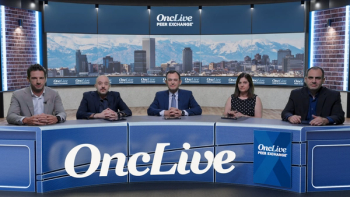
The experts examine the COMMANDS trial, which assessed luspatercept in lower-risk myelodysplastic syndrome patients, detailing the trial's design, participant groups, and key outcome measures.

Your AI-Trained Oncology Knowledge Connection!


Guillermo Garcia-Manero, MD, is director of the Fellowship Program, the Dr. Kenneth B. McCredie Chair in Clinical Leukemia Research, deputy chair of Translational Research, a professor, and chief of the Section of Myelodysplastic Syndromes in the Department of Leukemia, as well as leader of the MDS/AML Moon Shot Program at The University of Texas MD Anderson Cancer Center in Houston.

The experts examine the COMMANDS trial, which assessed luspatercept in lower-risk myelodysplastic syndrome patients, detailing the trial's design, participant groups, and key outcome measures.

The experts describe their strategies for selecting first-line treatments in lower-risk myelodysplastic syndrome patients, focusing on the key factors that inform their sequencing decisions in frontline therapy.

Key opinion leaders address various challenges linked to lower-risk myelodysplastic syndromes, with a focus on cytopenias.

The expert panel in hematology examines recent WHO and ICC guideline updates, evaluating their impact on the evolving treatment landscape for myelodysplastic syndromes.
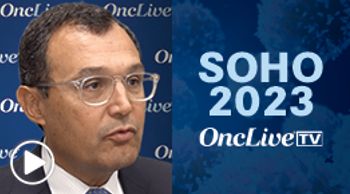
Guillermo Garcia-Manero, MD, discusses the key efficacy findings from the phase 3 COMMANDS trial evaluating luspatercept-aamt in patients with myelodysplastic syndrome who were erythropoiesis-stimulating agent naïve and red blood cell transfusion dependent.

Guillermo Garcia-Manero, MD, discusses key efficacy and safety findings from the phase 3 COMMANDS trial (NCT03682536) of luspatercept-aamt (Reblozyl) vs epoetin alfa in patients with lower-risk myelodysplastic syndrome.
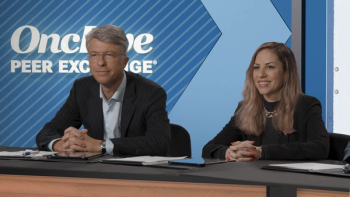
Experts close by summarizing key advances and remaining unmet needs across all MDS risk groups, and share their hopes for the future.
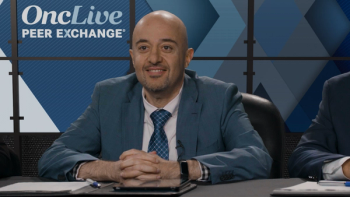
A brief discussion centered on MDS/MPN-RS-T overlap syndromes, considerations for diagnosis, available treatment options, and updates in the space.

The panelists touch on emerging data in the higher-risk MDS space, including updates presented at ASH 2022.
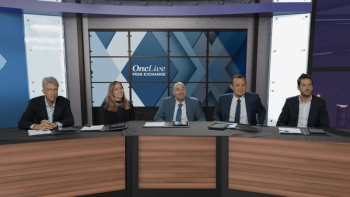
The panel turns their focus to higher-risk MDS, starting with a discussion of first- and second-line treatment options, followed by a third and final case presentation and discussion led by Dr Platzbecker.

Expert hematologic oncologists discuss updates from the ASH 2022 Annual Meeting on emerging therapies for lower-risk MDS.

Following the ASH 2022 Annual Meeting, experts in hematologic oncology review updated data for luspatercept in lower-risk MDS.

Hematologic oncology experts give an overview of first- and second-line treatment options for lower-risk myelodysplastic syndromes.

Experts summarize recent updates on other approved or emerging second-line therapies for lower-risk MDS.

Dr Komrokji presents key data updates from the MEDALIST trial on luspatercept in patients with lower-risk MDS that were presented at the 2022 European Hematology Association (EHA) Congress and the 2022 ASH Annual Meeting.

The panelists discuss Dr Cluzeau’s presented case, emphasizing the importance of pathology reporting, and expand upon approaches to second-line treatment selection for patients with MDS-RS.

Dr Cluzeau introduces a second patient case of lower-risk MDS-RS with an SF3B1 mutation and symptomatic anemia, who received a first-line erythropoiesis-stimulating agent (ESA) and second-line luspatercept.

Dr Komrokji leads a discussion on emerging data on how p53 mutations and chromosome 5q deletions may affect prognosis, treatment response, and outcomes for patients with MDS.

Expert panelists reflect on the case presented by Dr Garcia-Manero and share their unique perspectives on how they might have approached treatment and followup for this patient in their own practice.

Guillermo Garcia-Manero, MD presents a case of lower-risk MDS with chromosome 5q and 20q deletions and a p53 mutation, and discusses first- and second-line treatment selection.

Dr Platzbecker outlines available second-line therapies for symptomatic anemia in patients with lower-risk MDS, highlighting differences in availability between the United States and Europe.

Thomas Cluzeau, MD, PhD provides an overview of first-line treatment options for symptomatic anemia in patients with lower-risk MDS, followed by a discussion of panelists’ treatment patterns and dosing strategies across the globe.

A focused discussion on best practices for MDS pathology and risk status reporting in both community and academic center settings.

Uwe Platzbecker, MD introduces models commonly used to determine risk status and prognosis, and inform treatment decisions, for patients with MDS.

Moderator Rami Komrokji, MD, introduces the panel and invites expert pathologist Sanam Loghavi, MD to lead a discussion on the typical patient presentation and diagnostic process in MDS, which was recently renamed as ‘myelodysplastic neoplasms’ in the 2022 5th edition of the World Health Organization (WHO) classification of the disease state.

Guillermo Garcia-Manero, MD, professor of Medicine, chief, Section of Myelodysplastic Syndromes, in the Department of Leukemia, Division of Cancer Medicine, The University of Texas MD Anderson Cancer Center, discusses the potential of curing patients with myelodysplastic syndromes (MDS) and acute myeloid leukemia (AML). Garcia-Manero explained this reasoning in an interview during the 2016 OncLive State of the Science Summit on Treatment of Hematologic Malignancies.
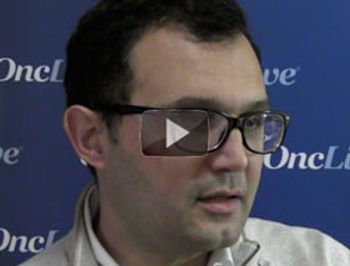
Guillermo Garcia-Manero, MD, chief, Section of Myelodysplastic Syndromes, deputy chair, Translational Research, professor, Department of Leukemia, Division of Cancer Medicine, The University of Texas MD Anderson Cancer Center, discusses deferasirox (Exjade) in iron chelation therapy for patients with myelodysplastic syndromes (MDS).
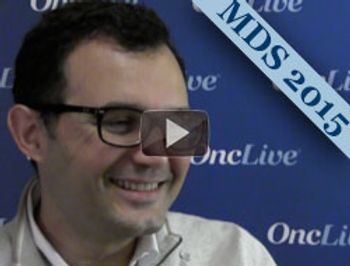
Guillermo Garcia-Manero, MD, chief, Section of Myelodysplastic Syndromes, deputy chair, Translational Research, professor, Department of Leukemia, Division of Cancer Medicine, The University of Texas MD Anderson Cancer Center, discusses the multikinase inhibitor rigosertib in patients with MDS who have failed hypomethylating agents.